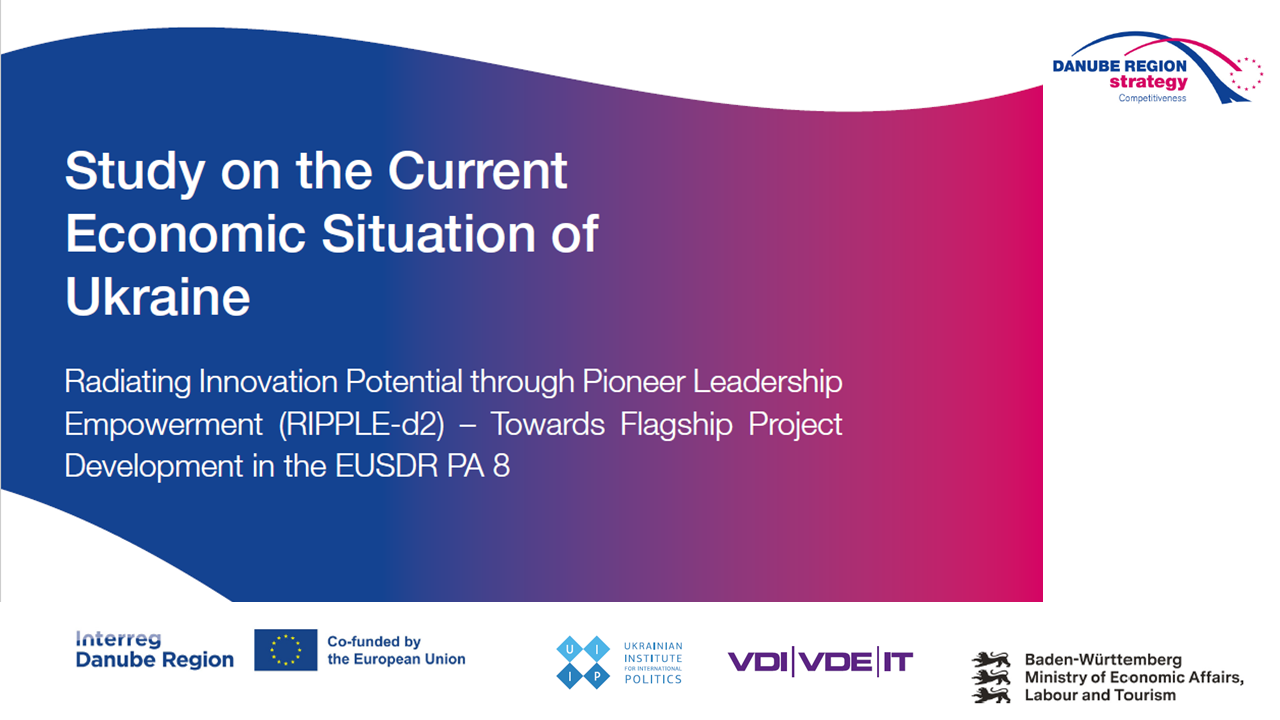How is the Ukrainian economy faring today — and what opportunities does this open for cooperation in the Danube region? These questions are addressed in the new PA 8 study “Study on the Current Economic Situation of Ukraine – Radiating Innovation Potential through Pioneer Leadership Empowerment (RIPPLE-d2)” by VDE VDI IT GmbH (Gerd Meier zu Köcker, Silke Schmidt, Anastasiia Volianska) and the Ukrainian Institute of International Politics (Nadija Afanasieva), with further contributions from Galyna Vasylchencko and Rostyslav Tomenchuk.
The study offers a detailed analysis of Ukraine’s economic structures and developments, focusing on key topics relevant to Priority Area 8 (PA8) of the EU Danube Strategy – and beyond.
It explores macroeconomic trends, the situation of small and medium-sized enterprises (SMEs), and the role of innovation and research in the ongoing reconstruction process. A comprehensive SWOT analysis highlights the main opportunities and challenges for economic cooperation, identifying where targeted support and international partnerships can have the greatest impact.
In addition, the study examines Ukraine’s cluster and industry landscape, pinpoints key economic sectors and regional strengths, and identifies promising areas for cooperation. It also provides an overview of funding programmes for SMEs and the innovation ecosystem.
This combination of quantitative and qualitative methods paints a comprehensive picture of the Ukrainian economy and innovation landscape, offering a solid foundation for future projects and initiatives in the Danube region.
👉 The full study is available for download Study on the Current Economic Situation of Ukraine_bf_final
This publication is part of a four-part initiative commissioned by Priority Area 8 of the EU Strategy for the Danube Region (EUSDR) and the Baden-Württemberg Ministry of Economic Affairs, Labour and Tourism to strengthen cooperation with Ukrainian partners.
Next steps include a stakeholder analysis building on these findings, and a workshop on 12 November 2025 to foster further cooperation across the region.
The initiative is funded by the Danube Region Programme and commissened by the Baden-Württemberg Ministry of Economic Affairs, Labour and Tourism.





